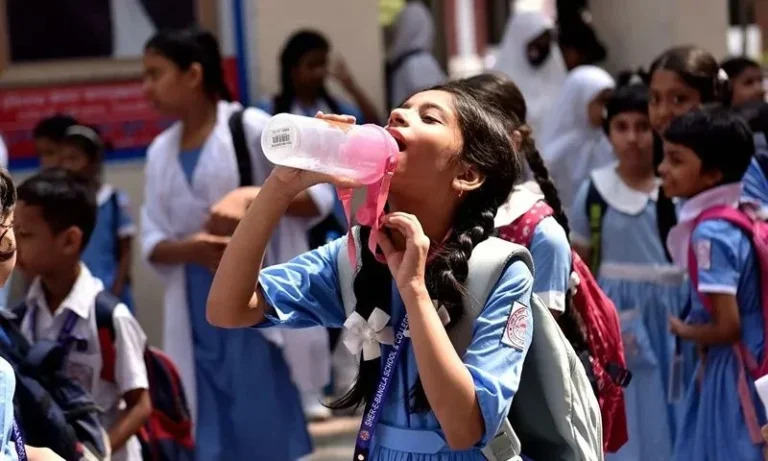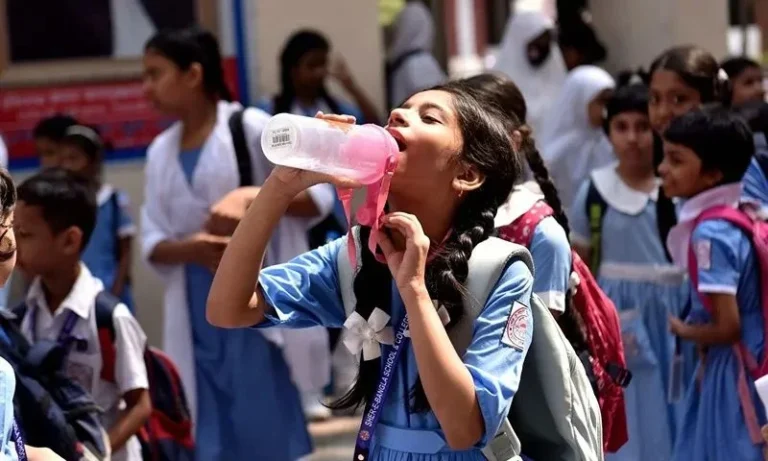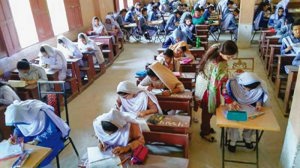
As temperatures continue to rise across the province, the School Education Department of Punjab has issued an urgent advisory for all public and private schools. This directive comes in response to the intensifying heatwave and is aimed at ensuring the safety and well-being of students and staff members.
With climate conditions becoming more severe, this advisory outlines a comprehensive set of measures to help protect children during school hours and minimize the risk of heat-related illnesses.

Key Directives from the School Education Department
The advisory issued by the SED outlines several mandatory precautions to be implemented immediately. These include hydration, improved ventilation, limiting exposure to heat, and first aid readiness.
Highlights of the Advisory
-
Schools must ensure the availability of clean and cold drinking water in every classroom
-
Students should be encouraged to drink at least eight to ten glasses of water daily
-
Classes should be conducted in well-ventilated rooms with proper airflow using fans or air coolers
-
All outdoor activities during peak heat hours must be avoided
-
Students should remain indoors during the hottest parts of the day
-
Schools must conduct awareness sessions about heatstroke symptoms and prevention
-
First-aid kits must be readily available
-
School staff should be trained to handle heat-related emergencies
Reasons Behind the Advisory
The recent spike in temperatures across Punjab has increased the risk of heat-related health issues such as heat exhaustion, dehydration, and heatstroke. Children are particularly vulnerable due to their lower heat tolerance and activity levels during school.
The advisory is intended to proactively protect students by reducing exposure to extreme heat and equipping schools with the necessary tools and knowledge to handle emergencies.
Preventive Measures Required in Schools
The School Education Department has directed all schools to adopt the following preventive strategies.
Drinking Water Availability
| Requirement | Details |
|---|---|
| Drinking Water | Must be clean, cool, and accessible in each classroom |
| Hydration Routine | Students should drink eight to ten glasses daily |
| Scheduled Water Breaks | Recommended at regular intervals during school hours |
Classroom Conditions
-
Classrooms should be airy and allow proper ventilation
-
Use of ceiling fans, pedestal fans, or air coolers is essential
-
Closed and poorly ventilated rooms should not be used for any academic activity
Ban on Outdoor Activities
-
Assemblies, sports, and physical education classes should not be conducted during peak heat hours
-
Students should stay indoors between eleven in the morning and three in the afternoon
Awareness and Emergency Preparedness
Conduct Awareness Sessions
Schools must organize awareness sessions for both students and staff to educate them about:
-
The symptoms of heat exhaustion and heatstroke
-
How to prevent heat-related illnesses
-
What actions to take during a heat emergency
First Aid and Medical Readiness
-
Schools are required to maintain updated first-aid kits
-
Designated staff members should be trained in basic emergency response
-
Emergency contact numbers must be displayed prominently
Tips for Students and Parents
The advisory also encourages parents to follow safety guidelines and prepare their children accordingly.
Safety Recommendations
-
Dress children in light-colored cotton clothing
-
Send children with a personal water bottle every day
-
Advise them to use caps or umbrellas while traveling to and from school
-
Encourage the consumption of fruits and light snacks instead of heavy meals
Responsibility of Teachers and Administrators
School staff play a vital role in implementing and monitoring these safety measures. Their responsibilities include:
-
Encouraging regular water intake among students
-
Keeping students indoors during extreme heat
-
Monitoring for early signs of heat-related illness
-
Ensuring immediate access to medical help if required
Summary Table of Required Measures
| Category | Action Required |
|---|---|
| Water Supply | Provide clean and cold water in classrooms |
| Hydration Monitoring | Encourage students to stay hydrated |
| Classroom Setup | Ensure proper ventilation and airflow |
| Outdoor Restriction | Ban all outdoor activities during peak heat |
| Health Awareness | Conduct sessions on heatstroke and prevention |
| Emergency Preparedness | Keep first-aid kits and trained staff available |
Long-Term Recommendations
With climate change leading to more frequent heatwaves, schools must prepare for long-term adaptation. Some suggested actions include:
-
Planting trees around school buildings to provide shade
-
Installing solar-powered fans or air-cooling systems
-
Introducing permanent educational programs on climate safety
The advisory from the School Education Department is a timely and necessary step toward safeguarding students during this period of extreme heat. By following these detailed guidelines, schools can create a safer environment for learning even under challenging weather conditions.
Strict implementation of these measures by both government and private institutions will play a crucial role in preventing heat-related incidents and promoting student health and safety in Punjab.












